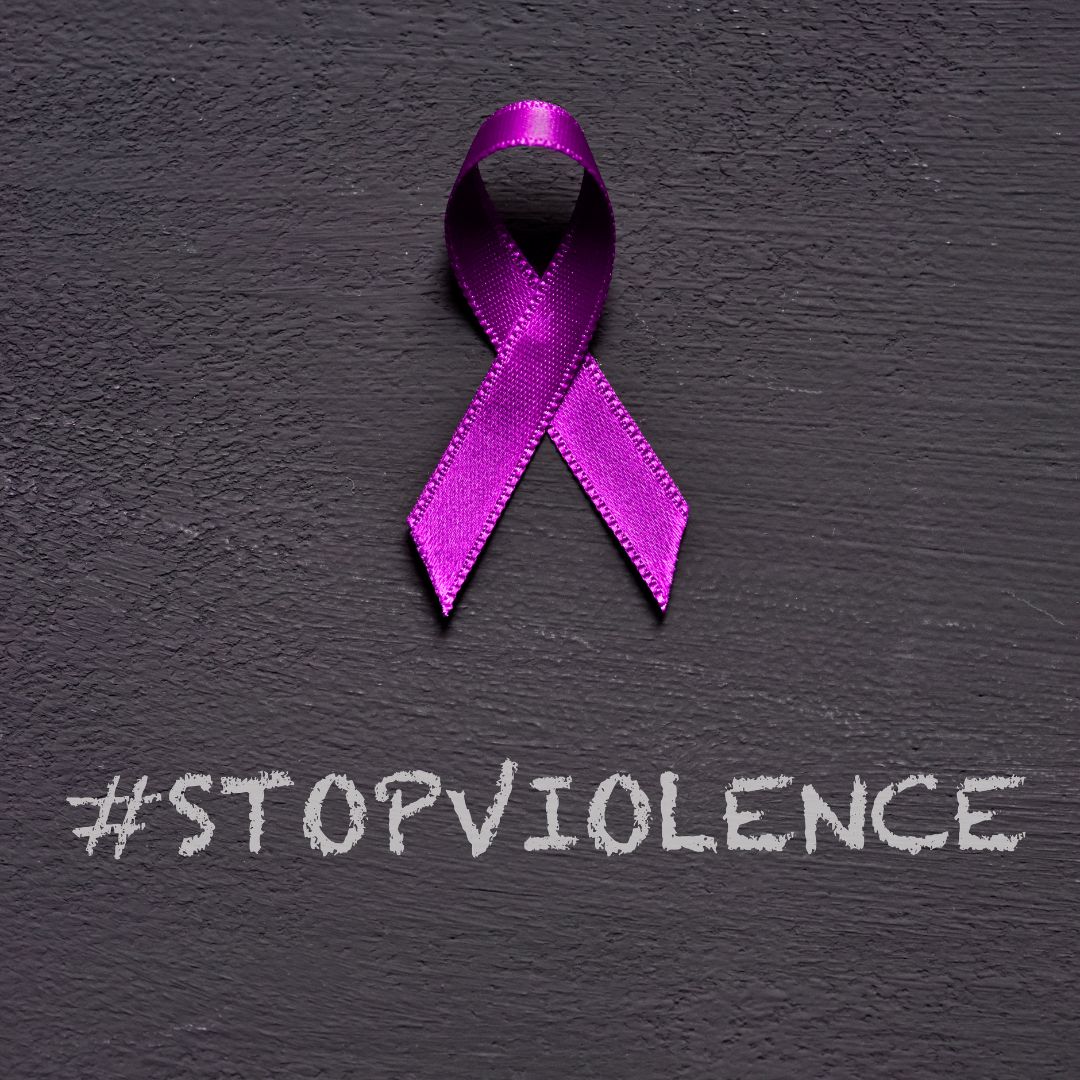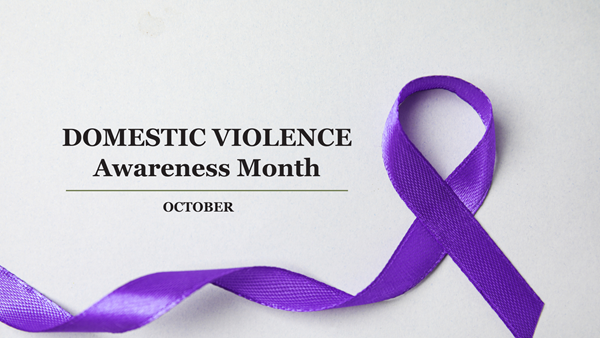October is Domestic Violence Awareness Month.
The United Methodist Book of Resolution states that, "Part of our call, as individuals and as a Church, is seeking to address the root causes of violence, working to eradicate it in its multiple forms, and being God's instruments for the wholeness of affected women and children," (#3427, Adopted in 2016).
Additionally, "We recognize that family violence and abuse in all its forms—verbal, psychological, physical, sexual—is detrimental to the covenant of the human community. We encourage the Church to provide a safe environment, counsel, and support for the victim. While we deplore the actions of the abuser, we affirm that person to be in need of God's redeeming love" (2016 Book of Discipline ¶161.G).
In our efforts to challenge the church for full equity of women, the General Commission on the Status and Role of Women has assembled the following resources as a starting point for churches and leaders to raise awareness on domestic violence and encourage individuals to examine their beliefs.

Wear purple on Thursday, October 19th, in honor of Domestic Violence Awareness month.
Facts:
- 1 in 3 women, and 1 in 4 men have experienced physical violence.
- 20 people per minute are physically harmed.
- 1 and 5 children are exposed to domestic violence.
- Every day in the U.S. A. more than 3 women are killed by their partner.
Ideas for AC COSROWS to host #StartTheConversation sessions
- Invite social workers, psychologist, educators, clinicians or law enforcement personnel to address the signs of domestic violence and provide assistance to those in need.
- Create safe places for victims to have confidential prayer space.
- Direct them to financial assistance in your city. 21%-60 % of women lose their jobs, if they are allowed to work outside of the home.
- Provide resources for survivors, including those on college campuses.
- Familiarize yourself with websites that provide resources for overcoming situations of domestic violence such as thehotline.org.
Short Prayers:
Sister, you have powerful potential.
We still serve a God who transforms, sanctifies and converts. Jesus said, come to me all who are weak and carrying heavy burdens and I will give you rest. Take the yoke I give you. Put it on your shoulders and learn from me. I am gentle and humble, and you will find rest. This yoke is easy to bear, and this burden is light. (Matthew 11:28-30 CEV)
The holy spirit is at work in us, you do not have to journey alone. Connect with a pastor or sister and lay down your load. Believe that God has a better plan for you.
Every time we exhale, we are in union with God. We are reminded that we share the love of God. We inhale, we exhale. We move, we are on the move, seeking wisdom from God. We know that God created us in God’s image, just a little lower than the angels and God wants us to experience life in its fullest. So, breathe, inhale and exhale and trust that God will lead us in a way, so that when we walk we know that we are not alone.
_
Don’t give up!
I am thankful for the seeds that were planted in me, and the devoted Christians that nurtured and directed me along the way. May this Upper Room Devotional prayer 2019, speak to your soul, and remind you never give up.
Faith is Simple Trust, as small as a mustard seed, and yet so powerful. It enables us to relax, release worry, and know deep in our bones that God will not forget, that we are loved unconditionally just as we are, and that God will be with us through whatever challenges and joys we experience. Tom Camp, Upper Room Disciplines 2019 (Upper Room Books, 2018)
_
Oh God, we have suffered greatly.
In order for us to overcome the social sins of sexism and their dehumanizing effects, there must be a collaborate participation of the representatives from all races, ethnic groups, males and females. Collaborative styles of leadership, and decision making are challenges for those who are accustomed to authoritarian models of leadership. Congregations must struggle to overcome our personal and cultural patterns of domination or submission and feelings of inferiority.
Yet it is this struggle of active listening, holy conferencing that we can hear the caged bird sing. It is in these conversations that we begin to see and experience the hope, joy and love of living in the patterns of right relationships, characteristic of God’s kingdom.
For Reflection: Maya Angelou’s “I Know Why the Caged Bird Sings”
Connexional Resources:
— Faith & Facts Card by GBCS (PDF)
— Child Abuse, Assault & Bullying Poster by GBCS (PDF)
— Do No More Harm by GCSRW (Web)
— #MeToo Tolkit by GCSRW (PDF)
— The Way of Integrity by GCSRW (PDF)
If you are experiencing domestic violence, contact the National Domestic Violence Hotline at 1-800-799-SAFE (7233) or text "START" to 88788.
A free bird leaps
on the back of the wind
and floats downstream
till the current ends
and dips his wings
in the orange sun rays
and dares to claim the sky.
But a bird that stalks
down his narrow cage
can seldom see through
his bars of rage
his wings are clipped and
his feet are tied
so he opens his throat to sing.
The caged bird sings
with fearful thrill
of the things unknown
but longed for still
and his tune is heard
on the distant hill
for the caged bird
sings of freedom.
The free bird thinks of another breeze
And the trade winds soft through the sighing trees
And the fat worms waiting on a dawn bright lawn
And he names the sky his own.
But a caged bird stands on the grave of dreams
His shadow shouts on a nightmare scream
His wings are clipped and his feet are tied
so he opens his throat to sing.
The caged bird sings
with fearful thrill
of the things unknown
but longed for still
and his tune is heard
on the distant hill
for the caged bird
sings of freedom.
In this memoir, the metaphor Maya Angelou uses is that of a caged bird, offering lessons on resisting oppression. “I know Why the Caged Bird Sings” Ballentine Books, New York. 2009
Scripture:
- Ephesians 3:14-20
- Luke 8:40-56
- 2 Corinthians 4:7-14
- John 11:1-44
- Ezekiel 34:11-16
- Psalm 31:9-24
- Psalm 16
- Psalm 43
- Psalm 63
Resources:
- A Troubling in My Soul: Womanist Perspectives on Evil & Suffering Emilie M. Townes editor. Orbis books, Maryknoll, New York.1996.
- Bible Sisters: A Year of Devotions with the women of the Bible. Gennifer Benjamin Brooks. Abingdon Press, Nashville, TN. 2017.
- Disruptive Christian Ethics Traci C. West. Westminster John Knox Press. Louisville, Kentucky. 2006
- The Cup of Our Life – Joyce Rupp. Ave Maria Press, Notre Dame, Indiana, 2005.
If you are experiencing domestic violence, contact the National Domestic Violence Hotline at 1-800-799-SAFE (7233) or text "START" to 88788.
To talk with someone at the General Commission on the Status and Role of Women for support during a situation within The United Methodist Church, you may call our confidential toll-free number at 1-800-523-8390.

